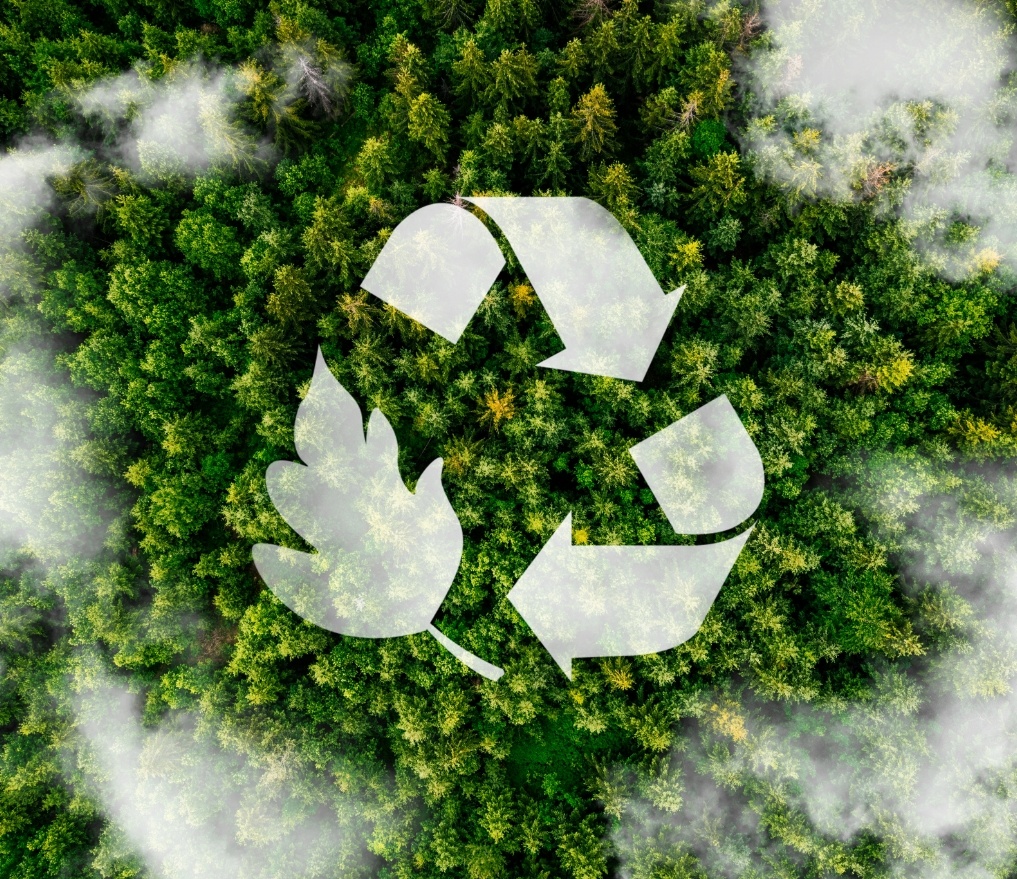Eco-Dictionary

Become a protagonist of change
MIDO, the international leading event in the eyewear industry, has embarked on a journey towards environmental and social sustainability.
Through initiatives like "Plastic Free" policies and promoting waste reduction, MIDO aims to reduce the environmental impact of the event.
This Ecodictionary provides guidelines for proper waste management during the event, encouraging exhibitors and visitors to adopt sustainable practices and actively contribute to environmental protection.
In collaboration with the public waste collection service manager in the Municipality of Milan, dedicated collection areas are equipped with bins and containers for the separate collection of all recoverable fractions resulting from the exhibition activities.
ORGANIC WASTE AND COMPOSTABLE BIOPLASTIC
Collected in the 240lt brown bin in single compostable bags (only bags with compostability according to UNI EN13432 released by DIN-CERTCO, Vincotte-TUV, CIC CertiQuality).
- YES: food waste, food remains, compostable dishes and products, compostable bioplastic.
- NO: food in non-compostable package, kitchen paper, cigarettes filters.
PAPER TETRAPAK CARDBOARD
Collected in the white bin - loose and folded.
- YES: Newspapers, magazines, bags, food containers made of cardboard, folded cartons and boxes, pizza boxes without food residues, beverage cartons (TetraPak).
- NO: laminated tickets, receipts, carbon paper (fax), parchment paper, plastic and cellophane, paper with food residues, laminated paper.
PLASTIC AND CANS
Collected in single transparent bags.
- YES: plastic bottles, beverage cans, plastic plates, cups and trays, bags, films (including cellophane), aluminum foil, caps, empty spray cans.
- NO: pens, umbrellas, cans and buckets, CDs, DVDs, full spray cans.
GLASS
Collected in the green bin - loose, without bags, without residual liquids.
- YES: empty glass bottles and jars.
- NO: mirrors, light bulbs, neon lights, ceramics, crystals, Pyrex, glass containers of used medications.
UNDIFFERENTIATED WASTE
Collected green bin - single transparent bags.
- YES: dirty paper towels, rubber, ceramics, wax paper, plastic paper for food.
- NO: all the recyclabe waste, all the hazardous waste such as batteries, paints, neon, medecines.
WHO
All exhibitors (including catering activities) separate the waste produced by applying the principles of waste sorting, in accordance with the rules set by the Municipality of Milan.
WHERE
WHY
Following waste sorting rules ensures the proper management of different types of waste and promotes the culture of their recovery in controlled supply chains.